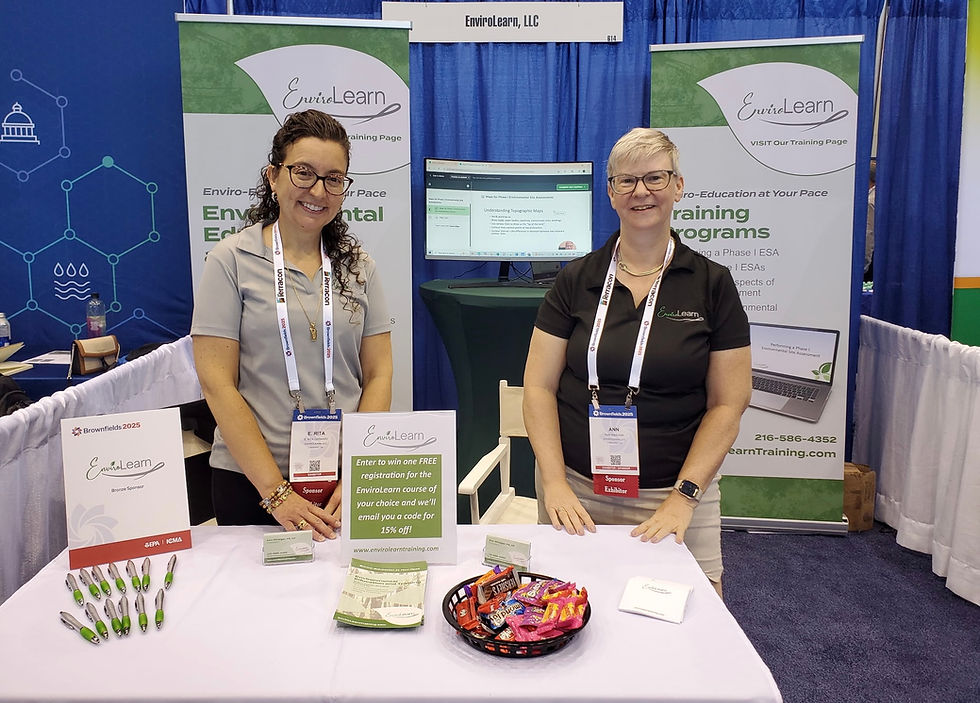The Importance of Professional Networking as an Environmental Consultant
- Mar 10, 2025
- 2 min read
Updated: Mar 26, 2025
As I plan my professional event calendar for 2025, I reviewed the events I attended over the past few years, and a few stood out. In October I traveled to the meeting of the Midwestern States Environmental Consultants Association (MSECA) and after a busy year, I found it so energizing to talk to other consultants and attend continuing education presentations. Sometimes it’s easy to get absorbed in day-to-day work and forget how important it is to be involved in professional associations. Association membership provides so many benefits, including opportunities for networking, continuing education, and advancing the field.
I am a member of Urban Land Institute (ULI), NAIOP (the Commercial Real Estate Development Association), and I recently joined MSECA. I’m also an Ohio Voluntary Action Program (VAP) Certified Professional (CP) and benefit from educational and networking events through the VAP program. I did not always understand the importance of networking and membership in professional associations, however. Earlier in my career, I had the mindset that, “I’m a scientist, just give me the data to analyze. Networking events? No, thank you.”
I reluctantly joined some professional organizations, but I credit my late friend Erin for getting me involved and excited about connecting with other environmental consultants. We met when Erin joined my former company to manage business development in our office. We shared the same undergraduate experience and even had some of the same professors, so we bonded quickly. She encouraged me to strengthen my LinkedIn profile and introduced me to the ULI and NAIOP organizations. Erin was a dynamo at networking and gave me invaluable advice to succeed at networking events – to bring my curiosity. If I feel uncomfortable at a networking event, now I remind myself that I’m a scientist and scientists ask questions.
The networking that we do in associations could bring us our next big project, create a future career opportunity, and inform us about trends within our industry or markets. But networking isn’t the only reason to be involved in associations. Many associations also offer educational opportunities for us to learn about topics in environmental consulting or those that affect our clients. What better way to learn about a new remediation option than from a fellow environmental consultant who recently used it on a project? Additionally, we are stronger as a field when we have our own associations and are represented in associations of the groups we serve.





Comments